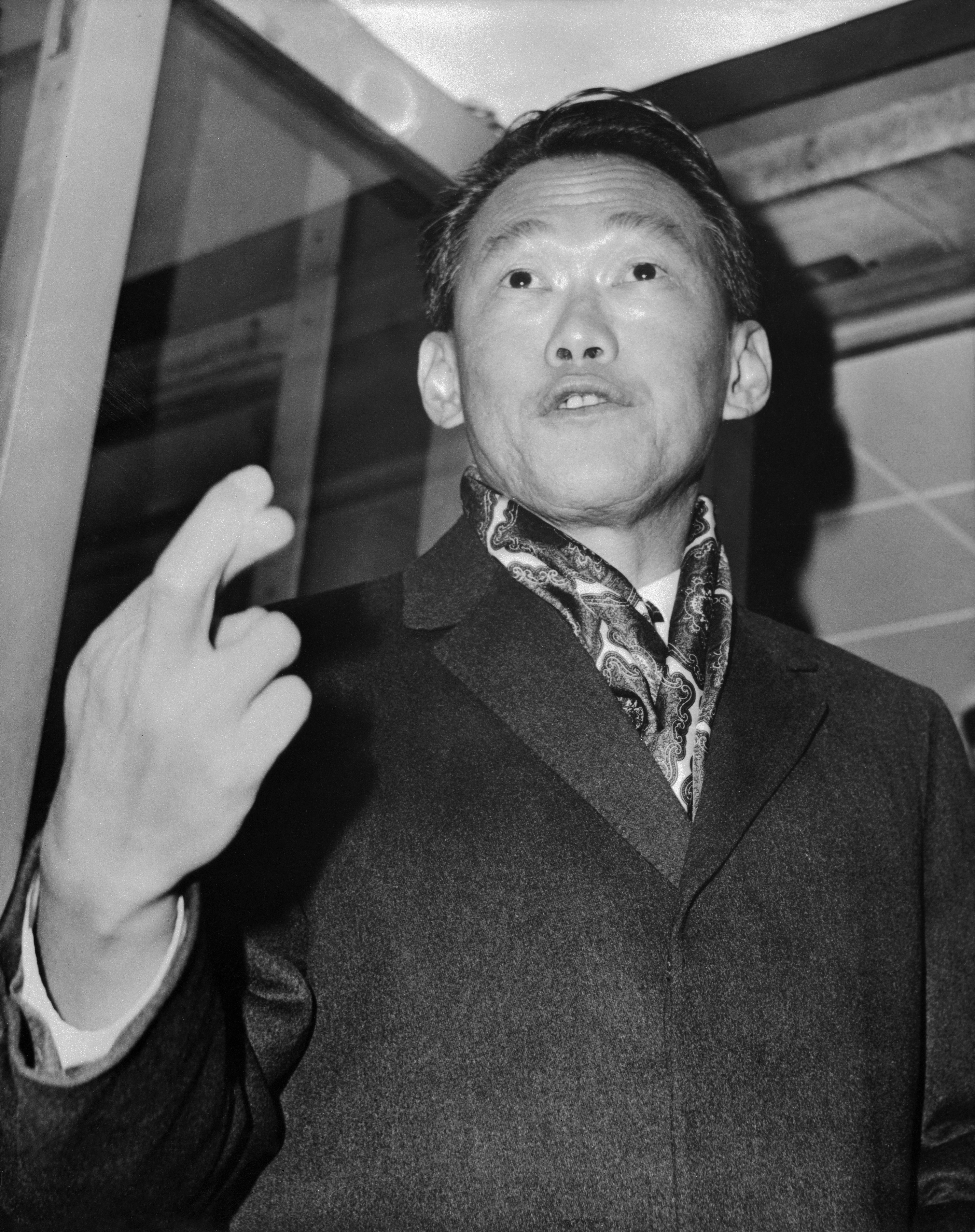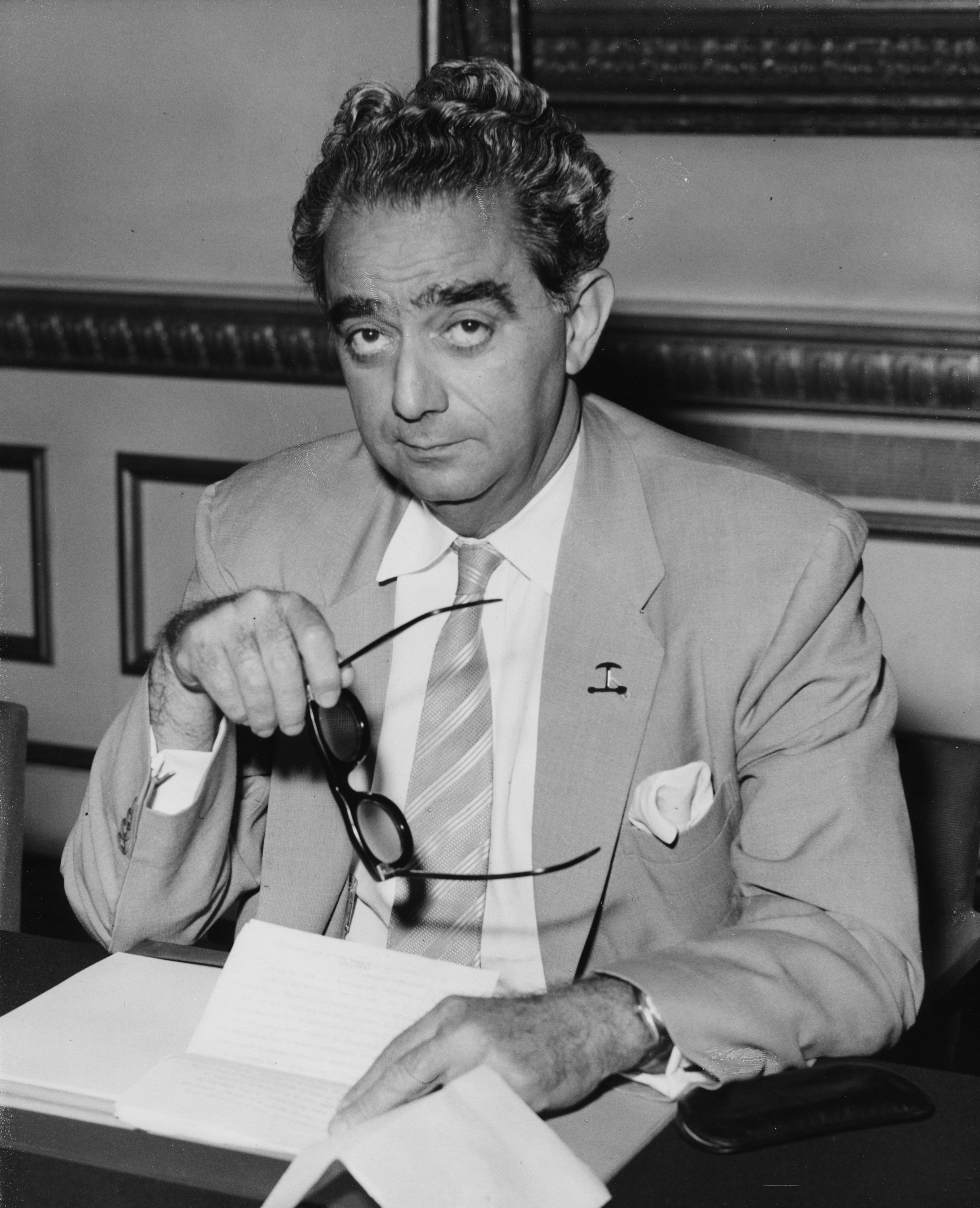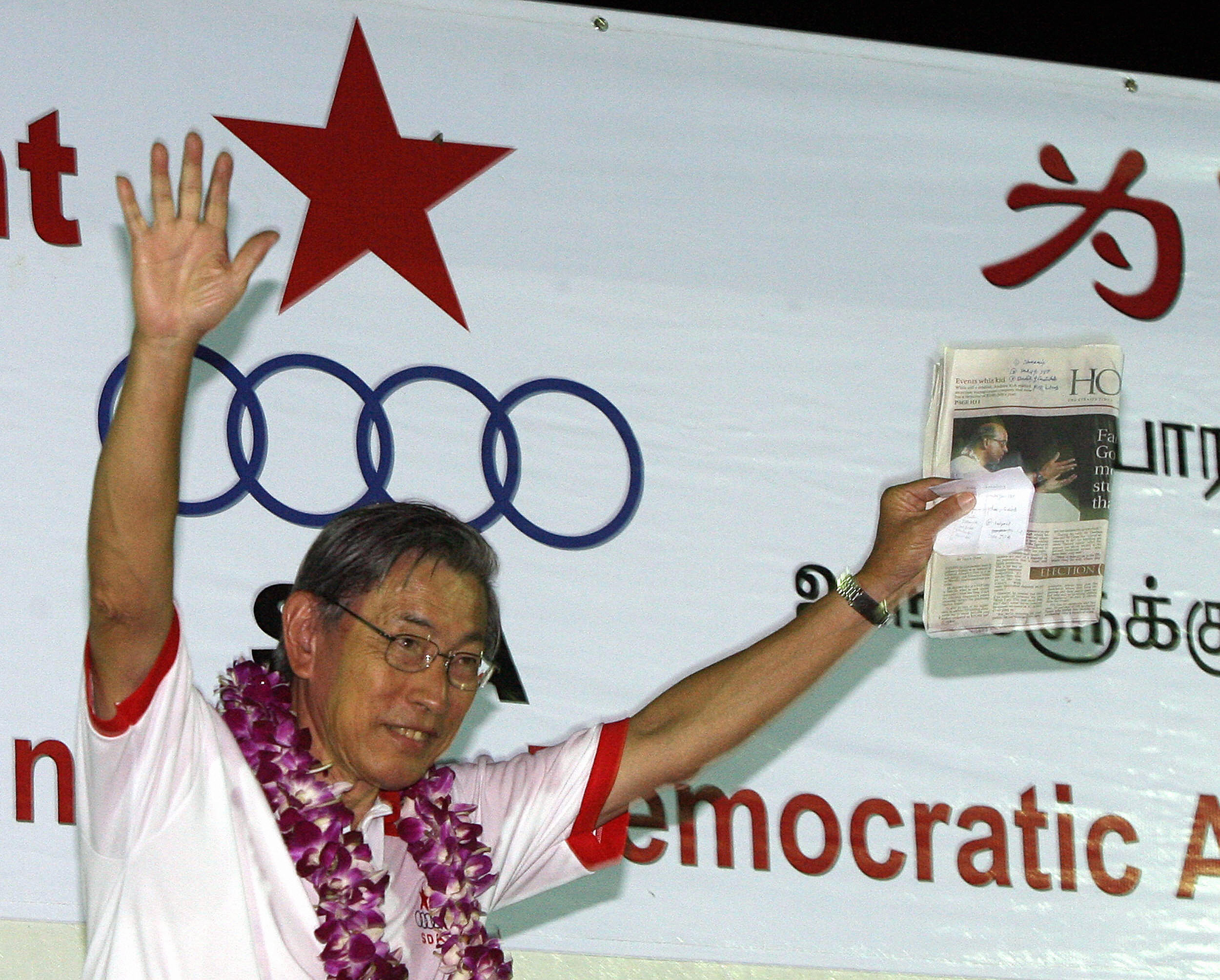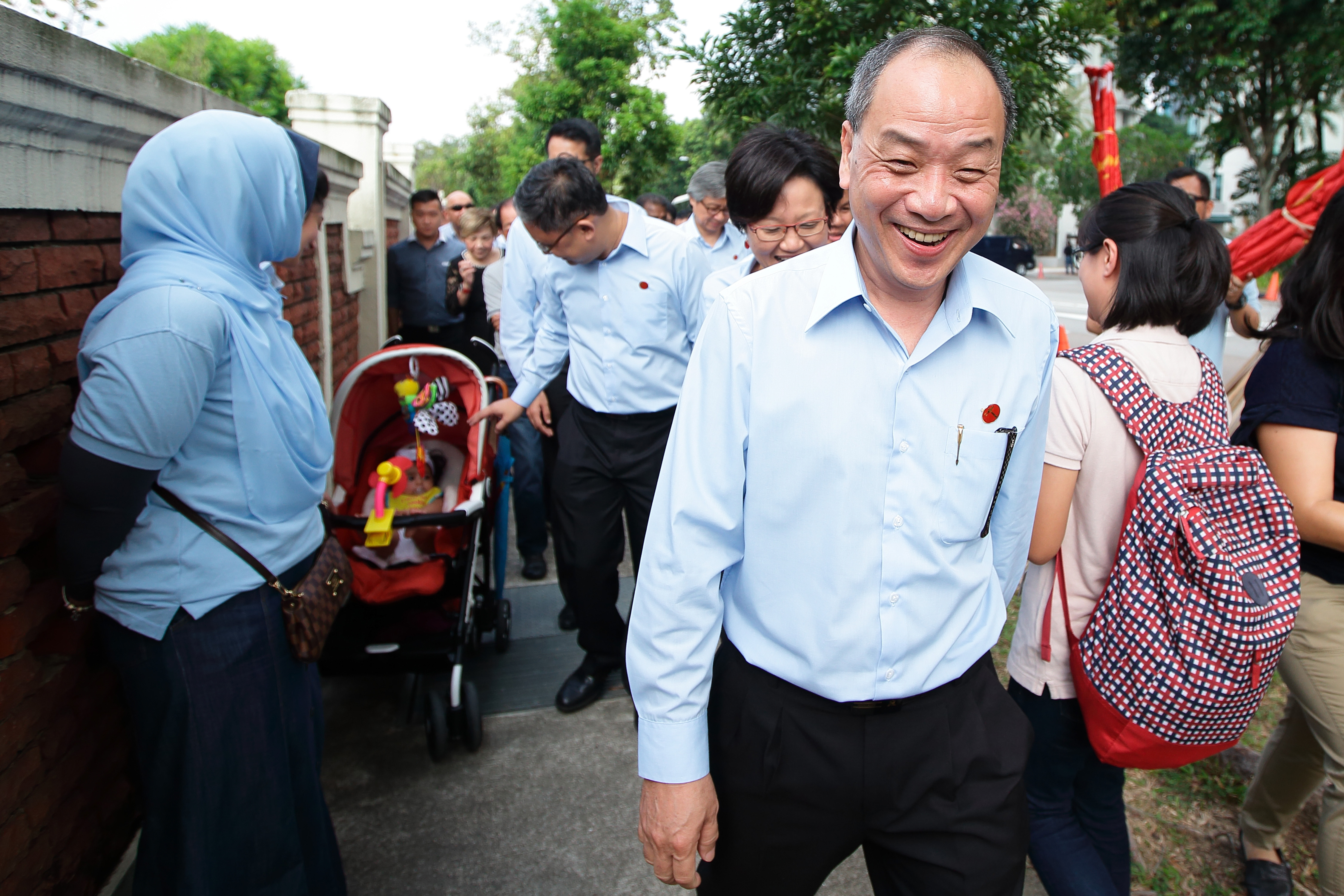2018 is the year of political leadership succession.
As talk of who the next Prime Minister (PM) might be intensifies, Singaporeans will also know the identity of the next Workers' Party (WP) chief in April.
Low Thia Khiang, WP Secretary-General since 2001, told the media on Feb 14 that "the party cadres have to vote and decide who is the next secretary-general. That is our procedure and we will go through that".
Leader of Opposition as a symbol in Singapore
The Straits Times previously reported that Low might ask the Speaker to allow the new WP chief to take up Low's current seat in Parliament, which is in the front row facing the PM and the DPMs.
Indeed, Low confirmed with the media on Feb 14 his intention to inform the Speaker when the WP Central Executive Committee (CEC) has chosen its leader.
Low would let the Speaker decide "whether it's important symbolically to have the new leader sitting at the position". ST also noted Low saying that "as Speaker of Parliament, I’m sure he will look into all these important symbolism of parliamentary democracy".
Merely a symbol
The Leader of the Opposition of Singapore is usually the leader of the second largest political party represented in the Parliament.
But he does not draw an additional salary. He receives the same remuneration as the rest of the members of Parliament.
There is an official role for the Opposition Leader in the United Kingdom though. The UK is where Singapore inherited the Westminster parliamentary system of government from.
The role of Her Majesty's Most Loyal Opposition commands a salary in addition to the parliamentary salary received as an MP.
The Leader also picks a "Shadow Cabinet" to follow the work of government departments.
In Australia, the leader of the Opposition also chooses his shadow cabinet and sits directly opposite the PM.
He or she also draws a pay higher than the Speaker and Cabinet Ministers.
[related_story]
The first Leader of Opposition: Lee Kuan Yew
 LKY keeping his fingers crossed at London (Heathrow) Airport. He arrived in London to persuade the UK Government not to pull its troops out of Singapore before the mid 1970s. (Photo by Getty Images)
LKY keeping his fingers crossed at London (Heathrow) Airport. He arrived in London to persuade the UK Government not to pull its troops out of Singapore before the mid 1970s. (Photo by Getty Images)
In the end, all political roads lead to Rome Lee Kuan Yew.
Lee was first elected to the new Legislative Assembly in 1955, representing Tanjong Pagar, and excelled in debates as de facto opposition leader.
In April 1955, a general election was held to elect 25 out of 32 seats in the 1st Legislative Assembly of Singapore.
Lawyer David Marshall's Labour Front won 10 out of the 17 seats it contested, while LKY's PAP won 3 out of 4 seats it contested.
 Marshall reading his notes at the Singapore Constitutional Conference, Lancaster House, London, April 1956. (Photo by Reg Speller/Fox Photos/Getty Images)
Marshall reading his notes at the Singapore Constitutional Conference, Lancaster House, London, April 1956. (Photo by Reg Speller/Fox Photos/Getty Images)
With the inclusion of independent MP Ahmad Ibrahim, PAP was the largest opposition party with 4 seats out of 32 seats (4/32 = 12.5%).
In his memoirs The Singapore Story, Lee said that he sat opposite then Chief Minister Marshall,
"Although the PAP had only three members in the Assembly plus Ahmad Ibrahim, the Speaker, Sir George Oehlers, placed me where the leader of the opposition would normally be seated, facing the chief minister".
The Lost Years
In the GE that occurred days after Singapore's merger with Malaya on Sep 16 1963, the Opposition - Barisan Sosialis, a party formed by left-wing members from the PAP - won 13 out of 51 seats.
However, Barisan MPs chose to boycott the first session of the parliament and resigned in groups. It also boycotted the 1968 GE.
There was no Opposition Leader or even Opposition MP as PAP won a clean sweep of seats from 1968 to 1981.
PAP's parliamentary monopoly was finally broken in 1981, when the late JB Jeyaretnam (JBJ), WP chief and laywer, won a seat in the Anson by-election.
The by-election was called as the incumbent MP Devan Nair resigned ahead of his appointment as President.
The "Unofficial" Leader of Opposition: Chiam See Tong
It would be strange to have a leader of the opposition, if there were not more than 2 opposition MPs in parliament (as in 1981-1991).
Things changed, however, in the 1991 GE. The opposition experienced an upswing in voter support and won 4 seats.
Chiam See Tong, an MP since 1984, led his Singapore Democratic Party to a three-seats victory (3/87 = 3.4%).
 Singapore, SINGAPORE: Opposition Singapore Democratic Alliance, Chiam See Tong at the 2006 election rally. (Photo by Roslan Rahman, AFP, Getty Images)
Singapore, SINGAPORE: Opposition Singapore Democratic Alliance, Chiam See Tong at the 2006 election rally. (Photo by Roslan Rahman, AFP, Getty Images)
Leader of the House Wong Kan Seng subsequently assigned Chiam the position of the "unofficial" opposition leader, sitting directly across the PM in Parliament.
When his title was announced, Wong said that Chiam would be given "due courtesy and precedence amongst the opposition MPs".
Besides sitting opposite the PM, Chiam was the first among opposition MPs to speak.
Chiam's role didn't last long.
Chiam resigned as SDP's Sec-Gen, and SDP picked its Chairman and Bukit Gombak MP Ling How Doong as the Unofficial Leader of opposition in August 1993.
Chiam would have the last laugh. He retained his MP seat while SDP subsequently lost both their seats in the 1997 GE.
The de facto Leader of Opposition: Low Thia Khiang
 Photo by Lim Weixiang for Mothership.sg
Photo by Lim Weixiang for Mothership.sg
Low, MP since 1991, was given the seat opposite the PM in parliament after the 2006 GE.
This was after WP garnered a second seat in parliament, with WP Chairman Sylvia Lim becoming its non-constituency MP.
After 2011 GE, Low's stature as the Leader of Opposition became even clearer as his party won 6 seats and received 2 NCMP seats (8/99 = 8.1%).
With Chiam losing his parliamentary seat, Low became the longest-serving Opposition MP in parliament.
The 2015 GE marked a slight improvement in WP's representation in parliament in terms of seats.
It now has 9 seats -- 6 seats and 3 NCMP seats (9/101 = 8.9%) and is the only Opposition party in parliament.
Is there a need for an Official Leader of Opposition in Singapore?
Does Low support the need for an Official Leader of Opposition?
Afterall, here will inform the Speaker about the change in WP leadership and let the Speaker decide on the seating arrangements of the new WP leader.
The answer is no. Not yet, not ready.
Low's stance is clear, as he ruled out accepting Chiam's title as "Unofficial Leader of the Opposition".
In a Sep 8 2011 interview with The Straits Times, Low said,
"Let's not kid ourselves. Either you have a leader of the opposition, or you do not have it. There's no need to have an unofficial leader of the opposition".
He added that the term sounded "derogatory" to him.
Low described the term as similar to a Mandarin phrase ("见不得光") - jian bu de guang - which means something that is considered shady and shameful.
Over the years, however, Low seems to appreciate the importance of a loyal opposition, like UK's "Her Majesty's Most Loyal Opposition".
In the motion on NCMP Seat in Jan 2016, Low said,
"The Workers’ Party is a rational and responsible political party. We understand the political reality. We understand that the struggle for a functional democracy by a loyal opposition must be fought from within the existing system under the law legislated by Parliament even though we disagree with them.
Therefore, we do not oppose individual members who are willing to sacrifice their time and energy to contribute to the national debate in Parliament...
It is the view of the Workers’ Party that the only way forward for a strong Parliament, one that can hold the Government of the day accountable, is for the ruling party, in the position of strength, to create a political system that would allow both genuine loyal opposition parties to grow, as well as for the ruling party to perform and compete for seats. (Our emphasis)"
Does Singapore require an official Leader of the Opposition, like those parliaments in other countries in future?
The reality is that none of the Opposition parties are able to form the government, unlike other countries.
So there is no point in having an official leader of Opposition who is not exactly the PM-in-waiting.
More importantly, it depends on Singaporeans, on whether they see the need for more Opposition voices in parliament.
But it also depends on the leading Opposition party.
In GE 2015, WP contested 28 seats in total.
Even if WP were to win all the seats it contested, its influence was to deny the PAP a two-thirds super majority, the number of MP votes needed to amend the Constitution.
In other words, WP will not be able to form the government.
As Low quipped in the same ST interview in 2011,
"When we are prepared to have an official title, then I will think about it. But we are not even there yet".
Top photo by Suhaimi Abdullah/Getty Images.
If you like what you read, follow us on Facebook, Instagram, Twitter and Telegram to get the latest updates.
